
I do not believe in free will. Schopenhauer's words, "Man can indeed
do what he wants, but he cannot want what he wants," accompany me in
all situations throughout my life and reconcile me with the actions of others,
even if they are rather painful to me. This awareness of the lack of free
will keeps me from taking myself and my fellow men too seriously as acting and
judging individuals, and from losing good humor. Albert
Einstein 1932.
A great deal of my free-pondering time has been devoted to the question of free will. I know this may not seem a question that matters in every day life, but I think it does. If there is no free will, the criminal justice system is founded on a false premise. If no one, when we look hard enough, acts intentionally or knowingly, but only as they must based on determinism, there is no basis for the mens rea that is usually required for punishment. Punishment itself is undermined. The whole federal guideline scheme based on "just deserts" is wrong. Criminal defense work apart, rejection of free will impacts how we interact with other folks in day to day life.
An anonymous comment to my last blog on "free will" refers to a Catholic Encyclopedia entry that affirms "free will." I take this response seriously. A great deal of my understanding of "free will" comes from Augustine, Aquinas and other Scholastics, and Pascal. However, I am persuaded none of these would embrace the modern concept of "free will" as we use the term and as we wield the term, as if it were a bludgeon, to kill our fellows. I say this in a quite literal since; a juror to whom I spoke after the verdict, justified his decision to kill with the term "free will."
The usual translation of "LIBERUM ARBITRIUM" into English is "free will." However, when Augustine writes of liberum arbitrium, he describes something very different from the excuse we today use to imprison and execute each other in the penal system. Augustine discusses liberum arbitrium in the Book V of "The City of God." Augustine leaves no doubt that the will or power of God determines everything in the world and that God knows what the future will be before hand. Augustine even reconciles himself with those who call it "fate." "If anyone attributes their existence to fate, because he calls the will or the power of God itself by the name of fate, let him keep his opinion, but correct his language."
Augustine discusses the twins, Esau and Jacob, to show that astrology cannot be true. (My translation calls the astrologists "mathematicians.") They were born at the same time, but had completely different predetermined lives. Our question though is why one son was loved by his mother (and God), and the other was not, and whether either Esau or Jacob had any control over the outcome of their lives?
Augustine tells of those who believe in determinism, that is, those who believe those who believe fate is "the whole connection and train of causes which makes everything become what it does become" are not in disagreement with him, but merely in a verbal controversy, "since they attribute the s0-called order and connection of causes to the will and power of God most high, who is mostly rightly and most truly believed to know all things before they come to pass and to leave nothing unordained...."
Augustine qoutes verses of Annaeus Seneca, "The Fates do lead the man that follows willing: But the man that is unwilling, him they drag."
So then, if "the order and connection of causes" leaves nothing unordained, what room is there for Augustine for this thing, Liberum Arbitrium? To begin with, this word "will" which in Latin is "voluntas" and not "arbitrium" should probably be "decision" or "judgment" or "discernment." (Look at the franciscan-archive. org linked under the title).
God's will is something different, but in the Augustine writings regarding man, substitute the word "decision" for "will."
God creates the will of man. Augustine, says, "In His supreme will resides the power which acts on the wills of all created spirits, helping the good, judging the evil, controlling all, granting power to some, not granting it to others."
And, "Wherefore our wills also have just so much power as God willed and foreknew that they should have...."
Our decisions are ruled by necessity, according to Augustine. "But if we define necessity to be that according to which we say that it is necessary that anything be of such or such a nature, or be done in such and such a manner, I know not why we should have any dread of that necessity taking away the freedom of our will."
So, I don't believe Augustine or the Church embrace what we today call "free will." Pascal devotes "Provincial Letters" to this argument and makes it much better than I can.
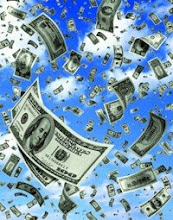
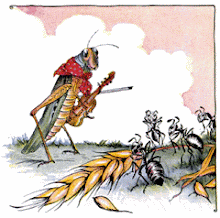













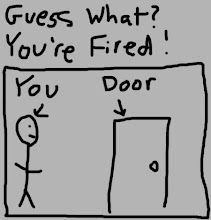
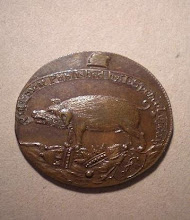









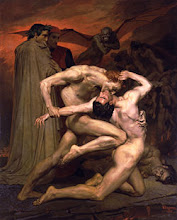_-_Dante_And_Virgil_In_Hell_(1850).jpg)



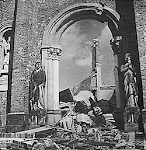











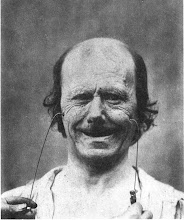
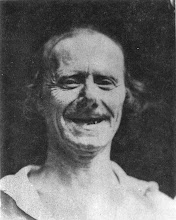


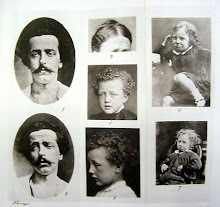





















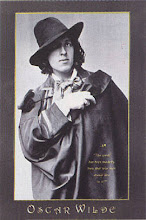
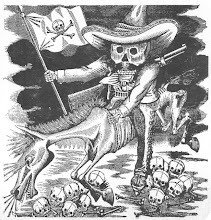












10 comments:
Interesting stuff. Of course, if we are going to achieve a truly Medieval mentality, we have to abolish free will. Except for the big boys. Maybe.
A. Friend
Augustine tells of those who believe in determinism, that is, those who believe those who believe fate is "the whole connection and train of causes ...
-ed.
Believing in free will allows us to have regrets, and regrets are pretty useful motivators.
Dear Ed,
Do you want too much from the intellect? How about just living with the limitation of the human mind and saying "I really don't know when it comes to the relation between Creator and creature."
Divine forknowledge need not determine the exercise of the will in the same manner that my experience allows me to make an accurate prediction of the consequences of a given action by another or, for that matter, of my own personal action. Intellect and will are distinct operations. How they are reconciled in given circumstances can exceed understanding.
Joe Krause
Ed,
Is this blog still active? Do you read these comments?
If free will does not exist, why do we feel so defeated when we go against our own natures, and so free, right, and strong when we go with them? The fact that going with our natures feels like destiny, and inevitable, doesn't mean we didn't choose. It just means the choice was so right it insults our own soul to doubt it. Why do we assume that if we want it it is bad? I believe in free will because of the palpable sense of deadening I get when I have chosen wrong.
Dear Anonymous,
Thank you for your comment. As I read again this post I wrote in 2010, I am not so certain about any of it now, as I was then. When you talk about going against our own natures, I translate that to going against God's will and I believe this does give a "a palpable sense of deadening." Now, I do not see a conflict between determinism and personal responsibility. I think it is a paradox, but have come to believe every profound truth involves a paradox. I am also not so certain determinism undermines the criminal justice concept of criminal responsibility.
Maybe I should remove the post and the blog, but it does remind me that I need to be tolerant of others opinions, because I never know when I will change my own.
Dear Ed, Please do not remove your post or your blog. Your words give me comfort, as truth often does. My comment was just food for thought. Lately, I've been forced by my circumstances to wonder if we properly understand free will. I have noticed in myself, for example, that the only time I get that palpable sense of deadening is when I have chosen "should" over "want," and the thing I have turned away from was something important, like grace, or compassion, or love. Later, when I look back at the choice, I realize I was presuming to know God's will. I was presuming that his voice was telling me what I "should" do, when really it was society, my own ego, or fear. Then, I wish with all my heart that I had been brave enough, knowledgeable enough, to trust my desire. Lately, I have been thinking that God has given us the ability to make free will choices. We must simply listen to our hearts, and our bodies. In the words of Walt Whitman, we must dismiss whatever "insults our own soul." In other words, we are capable of being very wrong about what God wants from us. And, we live in a society where shame and fear dictate so much of what we believe we “should” do. Have we thrown out the baby with the bath water in believing in determinism? Is it possible, we would think the idea ridiculous if we were taught that our own desires are not shameful, but the voice of our spirits listening to God? Sometimes, does not the "should" voice come from the devil?
Also, what do you mean about the lack of conflict between determinism and personal responsibility? The paradox of it? Do you mean that we do choose, but what we choose is preordained by our circumstances and what we've been led to believe is responsible?
you bucncha mugs
Post a Comment